There are many gorgeous collector’s items that the richest people around the world would pay any price to get their hands on – cars, paintings, clothing, you name it. Unfortunately, the cost for some of these rare items have a bigger price tag than you might think, some even cost the life of a poor animal. Elephant tusks have been a very valuable item throughout history, and even though killing these innocent animals for ivory has been made strictly illegal, there is still a huge demand for it in many countries around the world.
More info: National Geographic
Scientists in Gorongosa National Park in Mozambique recently noticed an unusual phenomenon
According to National Geographic, the majority of elderly elephants that survived civil war and hunting were tuskless.
Ivory has always been highly valuable. There is a common belief that it can cure numerous diseases and that it is also a way of increasing fertility and strength.
Slaughtering elephants for their valuable tusks has been around for many years
This practice has already threatened the survival of African and Asian elephants and national and international trade of ivory is strictly illegal.
Despite the law, ivory is still often used in alternative medicine and in art, for example, sculptures of religious depictions.
Now, researchers have found that one-third of the elephants in Mozambique are tuskless
There used to be only around 4% of tuskless elephants in the territory, but this kind is rarely ever killed, they are reproducing fast and their herds are growing.
After the news about tuskless elephants spread, many called it mother nature’s way of fighting back
With numbers rising, this type of change may prove to put a natural stop to the cruel and illegal ivory business. However, everything in nature works together and the butterfly effect of this change might cause changes to the entire ecosystem. Even though now scientists haven’t noticed any significant change in the way elephants behave without tusks, these overgrown teeth are very important and are used by elephants daily to get food. According to National Geographic, there are a certain type of lizards that often live in the trees that were roughed up by elephants, so if the number of tuskless elephants grows, it might also affect other animal populations.
Some people even said that these elephants are “evolving” in order to survive
But others quickly jumped in to explain that this type of change cannot be considered as evolution, as it is the result of cruel human activity and it could also lead to many other problems in our ecosystem.
12Kviews
Share on FacebookIt is still Evolution by "Natural" Selection with humans being the apex predator causing that selection. That does not mean we shouldn't be extremely bothered by it, but, scientifically, it does, sadly, illustrate Darwin's theory.
WillemPenn, I wanted to say just that, glad to see your comment here. Those who were quick to jump to conclusions were also forgetting that we humans are part of nature as well. Therefore, our actions, for bad or good, they are part of the natural selection process.
Load More Replies...It's the whole process of evolution ... not a "part" of it. It IS evolution. The ones better adapted to survive certain conditions are the ones "selected" to survive and pass their genes on. In this case, elephants with no tusks are "selected" to survive because the "condition" of hunters wanting tusks is evaded.
Load More Replies...Last commenter has it right. It's natural selection rather than evolution. There are fewer living tusked elephants to pass on those genes.
Awesome pics last week of the big mamma elephant whose tusks hit the ground - and survived to be able to die of old age.
Load More Replies...It is still Evolution by "Natural" Selection with humans being the apex predator causing that selection. That does not mean we shouldn't be extremely bothered by it, but, scientifically, it does, sadly, illustrate Darwin's theory.
WillemPenn, I wanted to say just that, glad to see your comment here. Those who were quick to jump to conclusions were also forgetting that we humans are part of nature as well. Therefore, our actions, for bad or good, they are part of the natural selection process.
Load More Replies...It's the whole process of evolution ... not a "part" of it. It IS evolution. The ones better adapted to survive certain conditions are the ones "selected" to survive and pass their genes on. In this case, elephants with no tusks are "selected" to survive because the "condition" of hunters wanting tusks is evaded.
Load More Replies...Last commenter has it right. It's natural selection rather than evolution. There are fewer living tusked elephants to pass on those genes.
Awesome pics last week of the big mamma elephant whose tusks hit the ground - and survived to be able to die of old age.
Load More Replies...
 Dark Mode
Dark Mode 

 No fees, cancel anytime
No fees, cancel anytime 


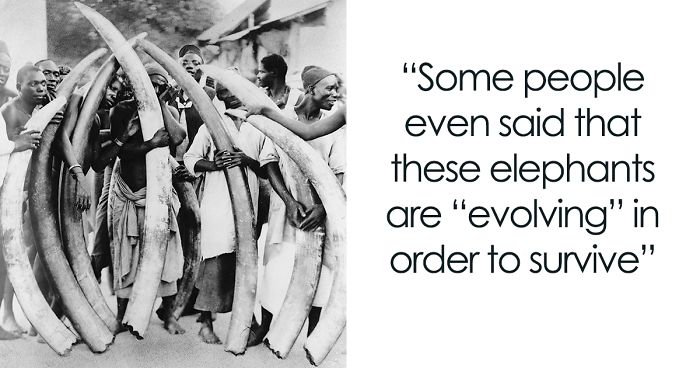
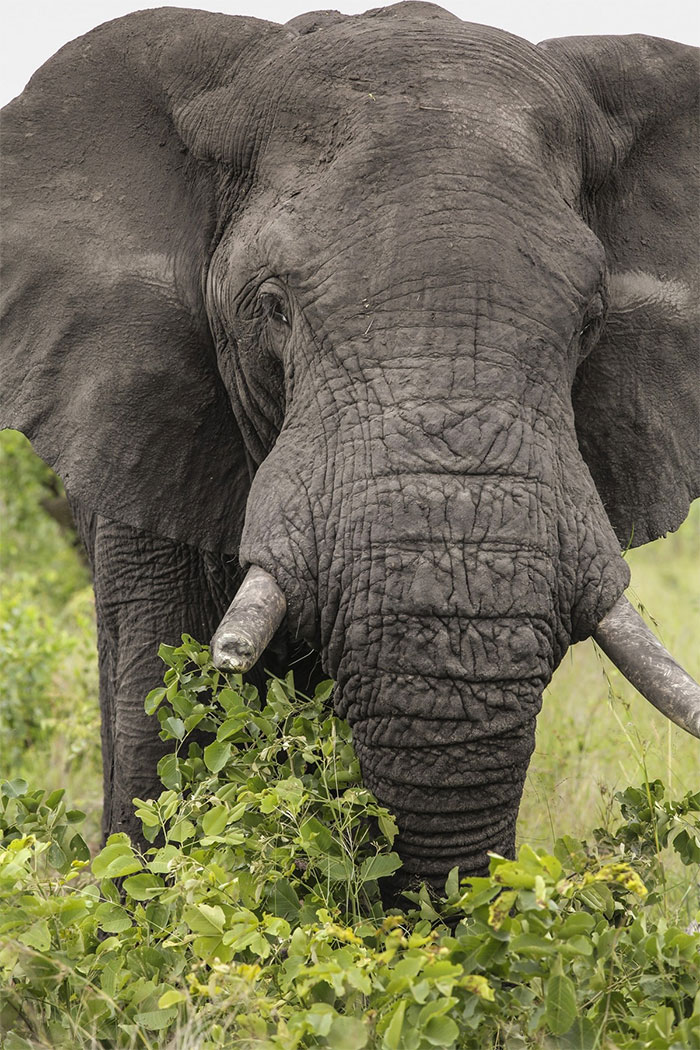

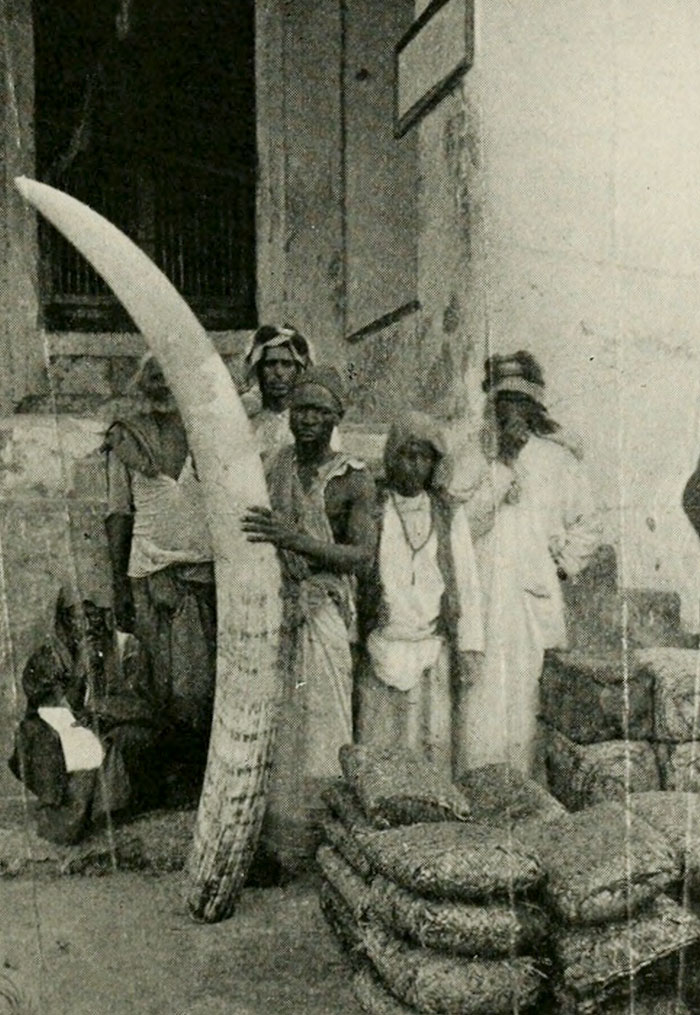
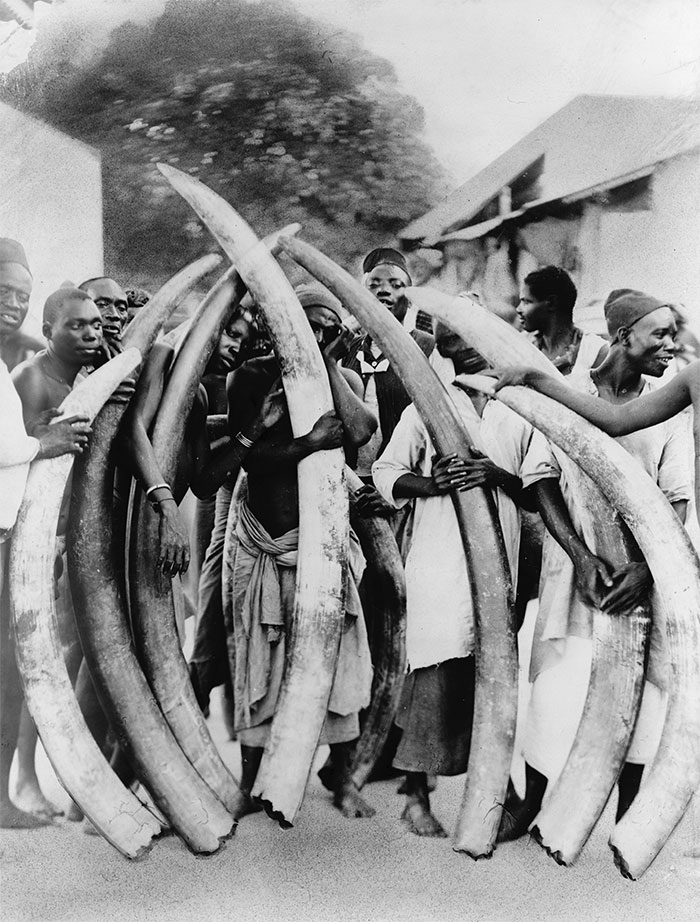
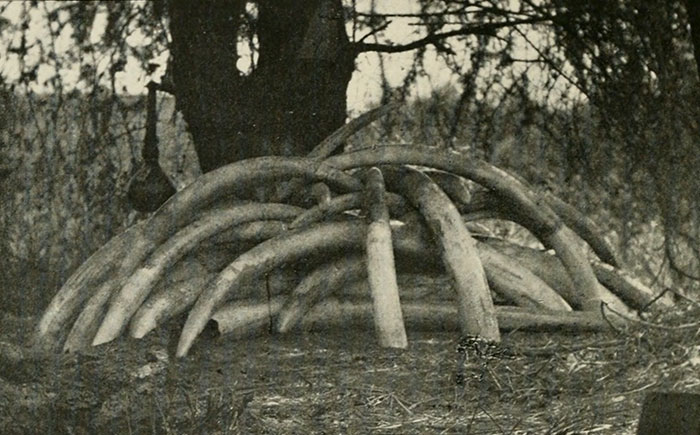
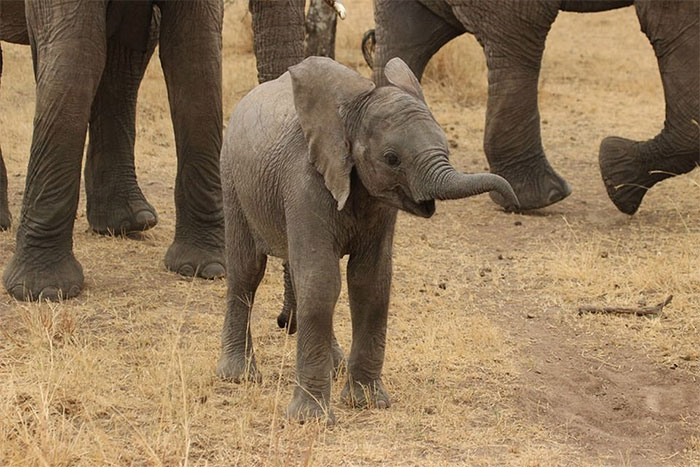
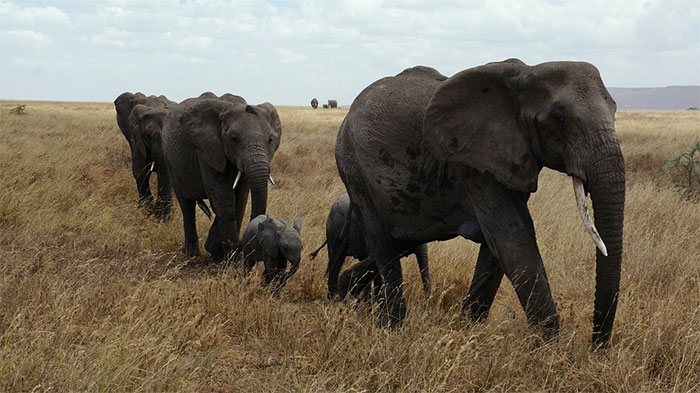




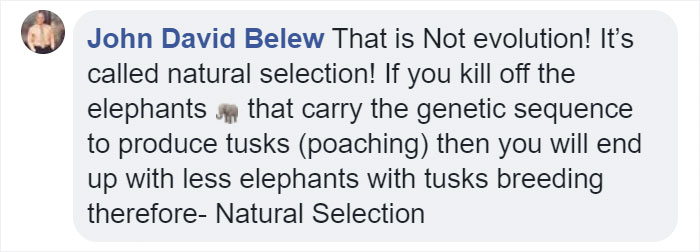











































138
87